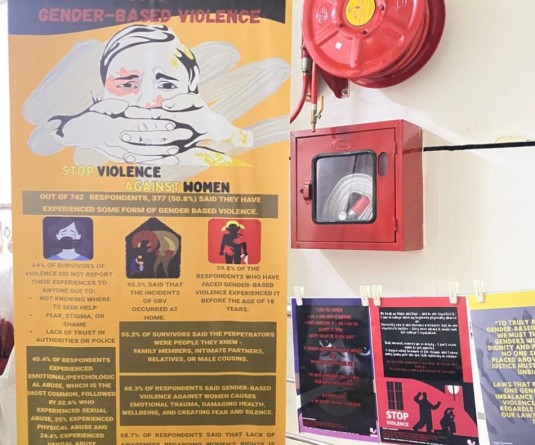
2nd National Peace Convention concludes; next to be held in Goa
Morung Express News
Dimapur | February 1
The Dimapur Peace Declaration 2016, formulated during the course of the 2nd National Peace Convention, has called for the abolition of the Armed Forces (Special Powers) Acts (AFSPA), among other resolutions.
The Convention also appealed to the Central Government and various ethnic groups in north-east region to ‘enter into dialogue’ and avoid usage of force and violence.
The 2nd National Peace Convention (NPC) concluded here today at Hotel Acacia, Dimapur, recognising the road to peace to be arduous but affirming solemn commitment to become promoters and builders of peace.
210 people from 16 States congregated in Dimapur -listening, reflecting and deliberating on peace- from different perspectives, recognising the urgency of peace-building.
The Convention was organised by the National Peace Movement in collaboration with Rotary International Dist. 3040 & 3240, NEISSR, Peace Channel, Universal Solidarity Movement and other NGOs.
NPC Chairman, Varghese Alengaden, informed that the next Convention will be held in Goa, and urged all the delegates to be the torch bearers of the resolutions adopted at the Convention.
Addressing the valedictory function today, People’s Forum for Peace (PFP) Chairman & Peace Activist, A Taku Longkumer, noted that Dimapur is like ‘mini-India’ where people from all communities and religion have resided without discrimination since its inception.
“Let us not politicize the (peace) movement and discard negativity from our mindset and join hand to make concerted effort to bring peace within our midst,” he urged the delegates.
Ashok Mahajan, Chairman of Rotary Foundation of India, who was Chief Guest on the occasion, said that while every proud Indian respectfully remembers Father of the Nation, Mahatma Gandhi, on his death anniversary on January 30, we neglect his philosophy and ethos.
Gandhi was the only Indian who did not differentiate on creed and deed, he maintained, regretting that Indians are no longer influenced by his lifestyle.
In this context, reiterating Gandhi’s notion that “An eye for an eye makes the whole world blind,” Mahajan opined that it is the right time for the positive forces of ‘Ahimsa’ (Non-Violence) to come alive. Don’t be a passive spectator to things happening around the world or make judgment and perception sitting in the cool comfort of your room, he urged.
Arguing that religious divide, caste discrimination, untouchability, inequality, empowerment offers significant challenges to peace and national integration, Mahajan further called for breaking out of ‘old-fashioned prejudices’ and look at issues from a new eye.
“Let unity of the nation be our primary task,” he said. The Rotary Foundation Chairman also called for celebrating diversity as a uniting factor, not a divisive force and making a conscious attempt to change our perception of other.
Changes should start within us, he stressed. “Be a candle and a mirror that reflect peace.” The president of Local Organising Committee, Dr. CP Anto stated that the Convention was a golden opportunity, especially for those coming from outside, to understand the reality of the north-east, particularly of Nagaland. He also spelled out the highlights of the Convention – the Dimapur Peace Declaration 2016 – a set of resolutions arrived at after 3 days of deliberation and discussion on peace.
At the outset, the Convention resolved with conviction to create awareness about the contribution of Mahatma Gandhi to ‘peace, forgiveness, and harmony’ through various avenues like workshop, seminars especially in educational institution.
“Make non-violence and forgiveness components of all subjects,” it suggested. The Government may increase the allocation for providing quality education to all especially to the poor through government schools and skills training, it stated.
It also resolved to be ‘proactive’ in the situation of conflict by taking initiative for bringing conflicting groups for dialogue and reconciliation.
Sharing time and resources for needy and for the common good of society and educating the youth about the ‘need for paying back to the society’ for the same was another important resolution adopted.
On economic front, it called for incorporating local self government, community based organisations and social activists in the process of state or central economic planning and making development inclusive to poor and marginalized community.
The resolution also appealed the media to highlight the ‘positive and proactive’ action taking place in the society and to minimize the reporting on crime and violence.
NPC General Secretary Dr. Sangeeeta Jain’s parting words reverberated among the attendees as she reminded, quoting Robert Frost, that they have “Promises to keep, and miles to go” before they sleep.






